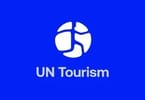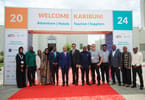Cape Town Tourism CEO Mariëtte du Toit-Helmbold has thrown down the gauntlet to human traffickers in the final countdown to the World Cup in June. In a hard-hitting statement, Du Toit-Helmbold said this week: “Our message is very clear – we welcome visitors from all over the world. But you will not be welcome if you exploit our women and children.”
She said the protection of women and children, through tourism, was essential.
“When people travel with the intention to exploit women and children, it becomes a matter of interest for tourism. It has to be. We cannot turn a blind eye and just focus on the pretty postcard pictures. There is a dark underbelly in tourism whether we like it or not. And that underbelly needs to be exposed and proactively dealt with,” Du Toit-Helmbold said.
“If we don’t do this, we can’t call ourselves a responsible industry. So, under the auspices of responsible tourism, we also tackle things like sex tourism, child sex tourism, the exploitation of women and human trafficking.”
Statistics around human trafficking are frightening. Figures suggest that within 20 minutes, you can order fast food from any restaurant – and a child under six years of age. “It’s a global problem,” said Du Toit-Helmbold, “And it’s a problem that often goes hand in hand with developing societies.”
She is part of an international task team looking at the protection of women and children through tourism, and she says while tourism can be a vehicle for much good, it can also do harm, in areas like irresponsible development, for example.
“Responsible tourism is about not doing harm to the environment, to host communities, and so on. I am passionate about making a positive difference to tourism, and I think many people, for many years, have turned a blind eye to the ugly underbelly of tourism. But we can’t ignore it – it’s a fact of life. We can’t wish it away. We have to deal with it proactively.”
She says this is why Cape Town Tourism will be a co-signatory to the Code against Human Trafficking, which is currently being developed. Her organization is also putting together a responsible visitors’ code, offering people some guidelines around how to be responsible visitors.
“We can all talk a good game, but it’s really about developing some practical tools to empower the industry and to empower visitors to Cape Town.
“Our message is plain and simple; if you are going to make yourself guilty of irresponsible behaviour, you are not welcome.”
Cape Town Tourism is a member of Fair Trade in Tourism SA (FTTSA) and has worked together with this body on an anti-trafficking initiative. Fair Trade in Tourism SA is South Africa’s leading responsible tourism non-governmental organization (NGO) and is launching a new project to institutionalize the Tourism Child Protection Code of Conduct (“the Code”) in South Africa, in partnership with the United Nations’ Children’s Fund (Unicef) and the International Labour Organization (ILO) and in collaboration with South African tourism stakeholders, including Cape Town Tourism.
The NGO hopes to welcome at least 10 leading industry players as Code signatories by June 2010. “FTTSA believes that protecting children at risk is a critical element of ‘2010 readiness,’ and we look forward to supporting tourism enterprises of all shapes and sizes to implement the Code,” said FTTSA executive director, Jennifer Seif.
Seif added that during the FIFA event, a national campaign to protect children will be ongoing, including messages – specifically designed to help prevent and report child sexual exploitation and other forms of child abuse – targeting tourists.
Fair Trade in Tourism SA is the officially-recognized Local Code Representative for South Africa, and Seif is an elected member of the international board of directors of the Code.
WHAT TO TAKE AWAY FROM THIS ARTICLE:
- Fair Trade in Tourism SA is South Africa's leading responsible tourism non-governmental organization (NGO) and is launching a new project to institutionalize the Tourism Child Protection Code of Conduct (“the Code”) in South Africa, in partnership with the United Nations' Children's Fund (Unicef) and the International Labour Organization (ILO) and in collaboration with South African tourism stakeholders, including Cape Town Tourism.
- She is part of an international task team looking at the protection of women and children through tourism, and she says while tourism can be a vehicle for much good, it can also do harm, in areas like irresponsible development, for example.
- Fair Trade in Tourism SA is the officially-recognized Local Code Representative for South Africa, and Seif is an elected member of the international board of directors of the Code.






















